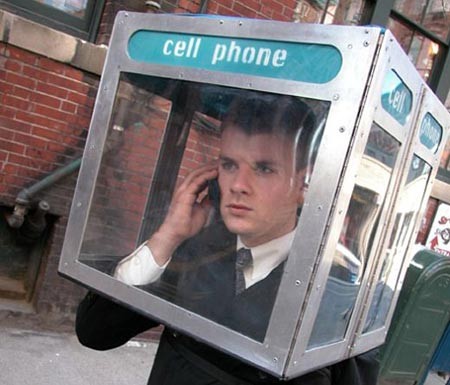Will Internet Addiction, Cell Phone Addiction, or Other Forms of Technology Addictions Slowly Chip Away at the Fabric of Society?
On Internet Addiction, Cell Phone Addiction, or Other Forms of Technology Addiction
When visitors read what this blog is about, people sometimes guess (mistakenly) that if I’m championing community, that I’m probably one those lovely sustainable types who doesn’t own a smart phone and grows corn stalks in every square inch of my yard.
(They would be disappointed by the very reasonable amount of granola in my cupboard.)
But I don’t have an anti-technology platform…because I’m not convinced boycotting smart phones automatically equates to being more connected to our neighbors. If Dr. Doofenshmirtz (obscure cartoon reference) somehow sucked all the cell phones in the world away, I think we’d still have a lot of people left who don’t have natural rhythms of friendship and healthy connection in their life.
Their ability to know and be known would prove to have little do with whether they have instant access to Twittter or Candy Crush in their pocket.
It’s definitely not that simple.
But there’s no denying that the social fabric of America, and of the developed world even, is changing.
Twenty years ago, what was the first thing people did when they woke up in the morning? Probably brush their teeth.
But what do they do now? If they’re like 90 percent of young smartphone users, they check their phone first thing…before they even get out of bed.
So yeah, we’re no longer waking up to the 1940’s…or 1960’s…or even the 1990’s. In some ways, that is good and in some ways, that leaves us feeling unsettled about the direction society is going.
And sure. Maybe the fact that people are so addicted to their phones makes some of us want to rush back to our grandparents and declare with them the world is changing too fast for its own good.
But the irony in it all of course is that all the previous inventions that had our grandparents perma-scowling from their la-z-boys and front porch rockers—the telephone or the radio or the television and so on–didn’t lead to the downfall of civilization after all. Humans are, in fact, pretty adaptable creatures who almost always find a way to integrate technology into the normal rhythms of life.
In fact, the tension between technology and life as we knew it is strongest (read most difficult) for the adopting generation–that is, the era of people who’ve lived in the bell-bottomed, leg-warmered, one-strapped bib overalled world before cell phones roamed the face of the earth. (Get it? Roamed? =)
We who remember a world before smart phones tend to cross some kind of mental plain and create a separate category for how we think about our online activity.
When I’m using technology=virtual world.
When I’m not=real world.
But those born into it, like the kids in my classroom who once reacted in shock to learn there were two George Bushes, don’t compartmentalize virtual and physical the way we do. Cell phones are a part of the world that greeted them from the birth canal. There is no tension between before and after. There’s only now.
For kids and the youngest of “young adults,” technology is integrated into their environment–it is just one of many parts of their existence that was not suddenly thrust upon them, but that they will grow up using and understanding gradually.
The world–and derivatives of it, society, civility, human communication–will probably not be destroyed by the arrival of the cell phone.
But it may be confused for a while.
So the question for me isn’t about trying to shun as much technology as possible (although, for some of us, that may be where we land). The question is about how we integrate technology into our lives only at the level it supports and does not threaten our ability to be aware and responsive to the people who share our lives.
Part 2 of this discussion on being fake on Facebook is here, but for before you go, tell me this: Different people regulate (or don’t regulate) technology in different ways. What ideas or approaches to balancing technology usage have you heard about? What are the ways that make the most sense to you?


Brandon September 5, 2013 (3:25 pm)
I have a lot of friends who make more or less rules about when they shut their phones off. Like after 8 pm they don’t respond to texts unless it is
Brandon September 5, 2013 (3:25 pm)
an emergency. (Sorry. Hit send early.)
Erin Markham September 5, 2013 (4:36 pm)
Here’s another question. Is it ethical to have your phone out at work all day or do all those minutes of surfing add up to cost your employer in productivity? I know some employers don’t care and turn their heads but others I think would be pretty angry if they realized how much is going on.
Butters September 5, 2013 (11:46 pm)
I bet the girl in this video would disagree with you
http://www.youtube.com/watch?v=-T_OP46XL1g
Rachael August 19, 2014 (11:05 pm)
Very good info. Lucky me I recently found your site by acciden (stumbleupon).
I have saved as a favorite for later!